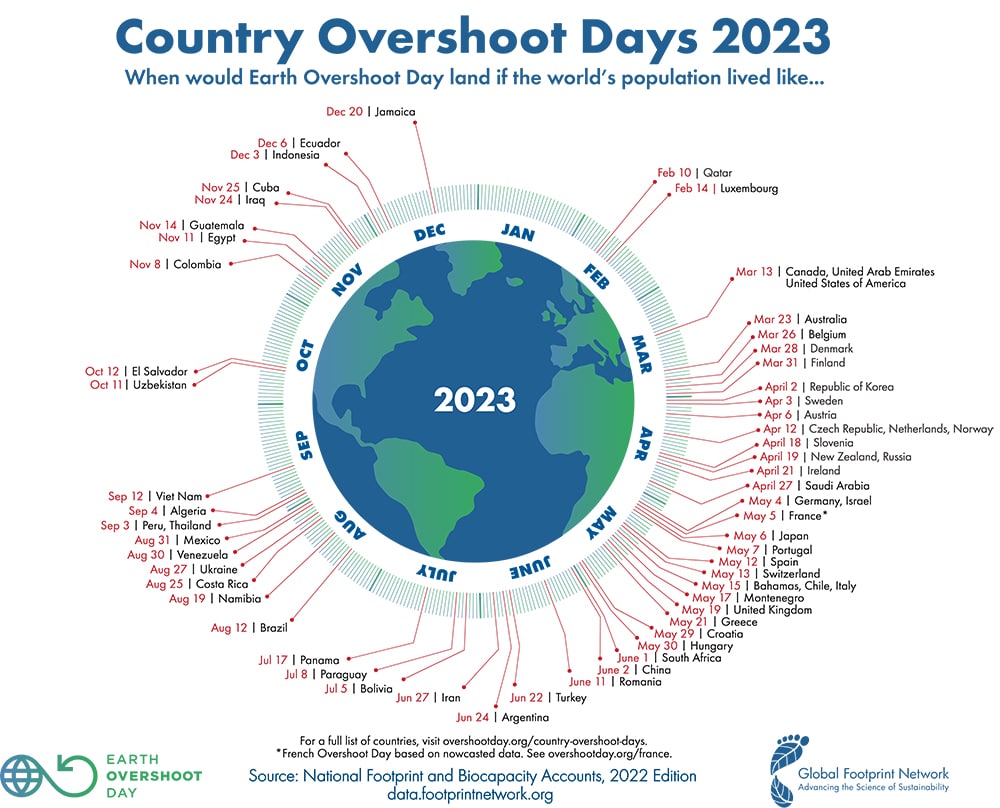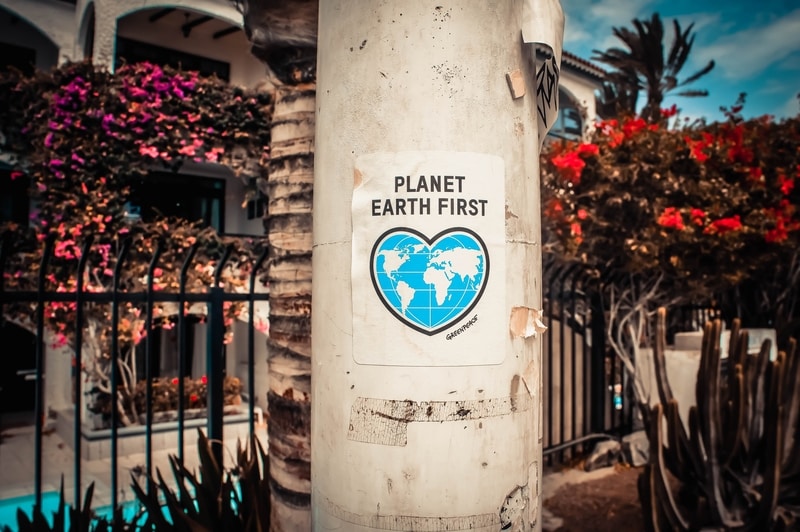Earth Overshoot Day marks the date when humanity has exhausted nature’s budget for the year. It means that for the rest of the year, we are expanding our ecological deficit by using up local resources and pumping greenhouse gases into the atmosphere. This year, Earth Overshoot Day falls on August 2.
—
Today marks the day when humanity’s resource consumption exceeds the Earth’s capacity to regenerate those resources for the year.
This year, it falls on 2 August, nearly three weeks earlier than last year, when Covid19 lockdowns and restrictions slowed down global economies and thus consumption. Overall, however, Earth Overshoot Day has been getting earlier since the 1970s. Experts estimate that at the current rate of consumption, it would take 1.7 Earths to produce and regenerate all the resources we use today.
Overshoot days are calculated for individual countries, too. If the whole planet consumed in the same way as the UK does, overshoot would occur on 19 May. Qatar has the earliest overshoot day (10 February), followed by Luxembourg (14 February). The US, Canada, and the United Arab Emirates are all on third place (13 March). Jamaica has the latest one (20 December).

A country’s overshoot day is the date on which Earth Overshoot Day would fall if all of humanity consumed like the people in that country. Image: Earth Overshoot Day.
This day is a reminder of how unsustainable modern consumption patterns are and how these are adding immense pressure to our planet’s ecosystems.
You might also like: World Is Running Out of Carbon Budget to Limit Global Warming to 1.5C, Scientists Warn

















